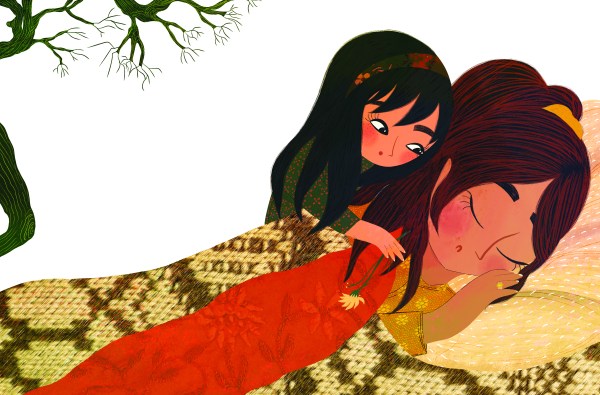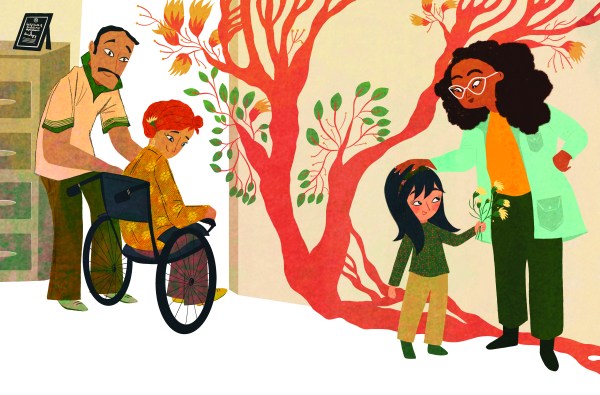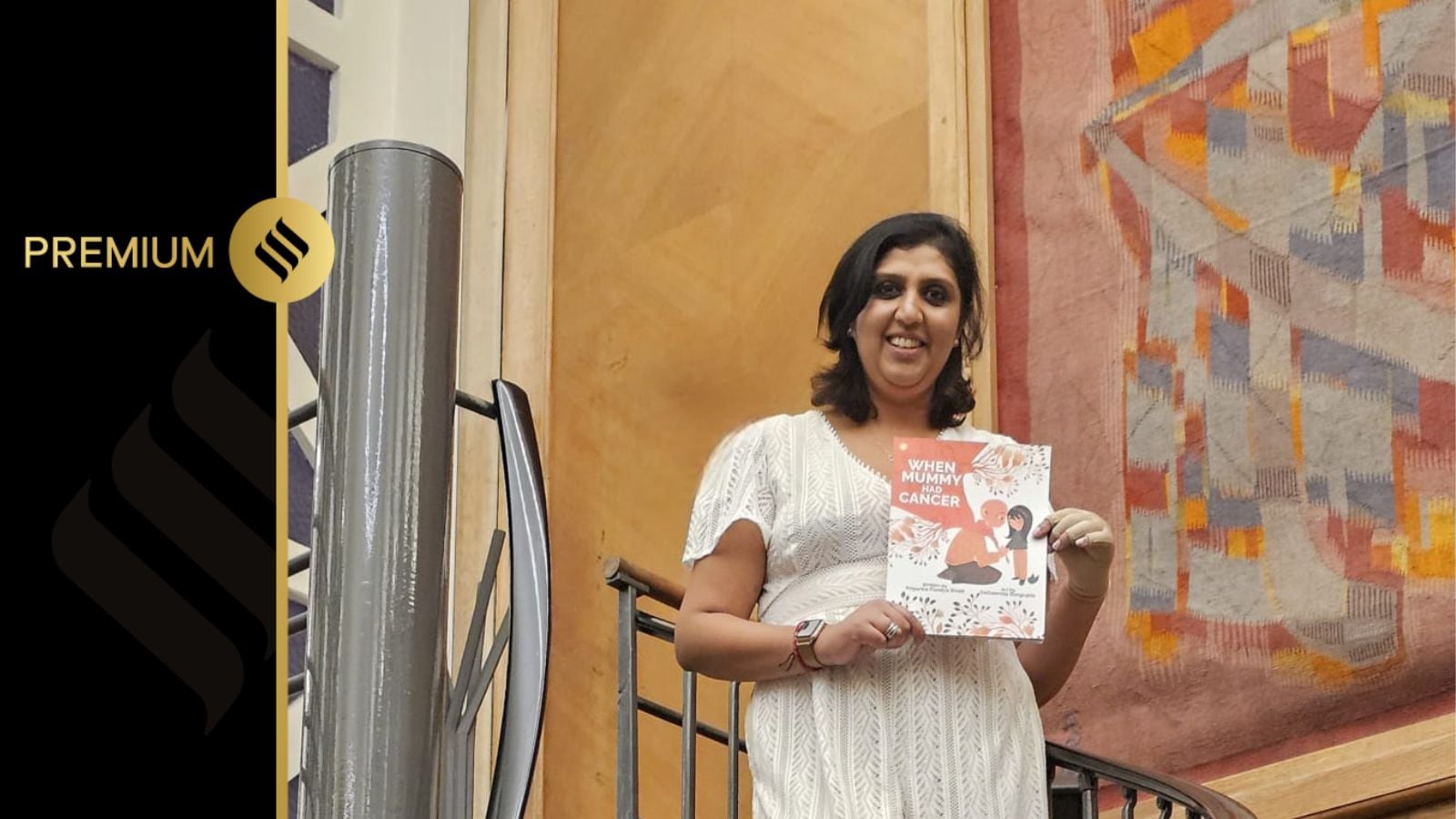Before she became a life coach for children, helping them make sense of modern-day challenges and encouraging them to express themselves and ask questions, London-based Priyanka Pandya Bhatt had a hard time explaining to her daughter why she needed to go to hospital frequently. “In 2022, right in the middle of Covid and lockdowns, I was diagnosed with breast cancer, the kind that needed aggressive intervention. My eldest daughter was just four then and my youngest just two. As a young family, processing all of this was too much. And then my daughter had so many questions. Rather than pushing her to uncertainty and insecurity, I decided honesty was the best way out, and she became part of every stage of my therapy,” says Bhatt.
Although the diagnosis was life-altering for Bhatt, more challenging was dealing with the fear and anxiety of her four-year-old daughter. “Who would explain it to her if not myself? And in a language she understood. We prepare our children for the world ahead of them, make them aware about violence, substance abuse and predators. Why don’t we prepare them for dealing with cancer, which is age-agnostic and the incidence of which is going up?” asks Bhatt, who has just penned an educative book, ‘When Mummy Had Cancer,’ told through the innocent eyes of her four-year-old daughter.
 Although the diagnosis was life-altering for Bhatt, more challenging was dealing with the fear and anxiety of her four-year-old daughter.
Although the diagnosis was life-altering for Bhatt, more challenging was dealing with the fear and anxiety of her four-year-old daughter.
“I hope it offers comfort and connection to other families and their children weathering a similar crisis,” says Bhatt of her graphic-heavy book, which is done in warm colours and written in simple language to lend affected children a voice. “Honesty works for children as it enables them to ask us about anything, build trust and confidence. Once you let them in on your truth, they won’t become secretive later in life,” she adds.
Story continues below this ad
THE BEGINNING OF A DIAGNOSIS
Bhatt got suspicious with a lump in her breast after which she was diagnosed with triple negative breast cancer, an aggressive and invasive type of breast cancer. Patients test negative for estrogen receptors (ER), progesterone receptors (PR), and the HER2 protein receptor. In the absence of these receptors, treatments that work for other breast cancer types are not effective. That’s why chemotherapy becomes the first line of treatment.
Overwhelmed herself in a nuclear family, she began looking for some counselling support from her daughter’s school. “But they didn’t have a module of communication that could break down the complexities of a crisis to children and help them cope with it better. One year into the treatment, we changed her school, which had a better centre of family counselling. Meanwhile, the nurses also gave me a book on handling queries of children and understanding their worries,” says Bhatt. But she realised that while the youngest took the book-reading sessions as part of a story-telling session, her elder daughter did not ask any questions. She gave her time and agency to ask questions, even asking her to write them out on a piece of paper.
“Finally, she asked a question on how chemotherapy was administered,” says Bhatt.
HELPING A CHILD COPE WITH MUM’S THERAPY
Bhatt spoke to a nurse about her daughter’s intention to learn about chemotherapy. So as not to frighten her, they showed her the infusion pump and the chair when the premises were empty, explaining to her what happens. “They introduced her to it in an age-appropriate manner and gave her cookies to ease her anxiety. I don’t know if the cookies did it but my daughter began to trust the nurses for my care rather than anybody,” says Bhatt, whose parents came over to support her and take care of her daughters.
Story continues below this ad
 Bhatt is all for educating a child about cancer and treatment protocols
Bhatt is all for educating a child about cancer and treatment protocols
Sometimes, when Bhatt was fragile after chemotherapy, her daughter would feel exasperated. “She hated it when I could not go out but I could not risk picking up an infection. All family hands were on the deck as I struggled but I made sure that whenever I had time, I spent it with her. I kept her informed about what was happening to me,” says Bhatt.
DEALING WITH BAD DAYS
Bhatt had bad days when her blood pressure dropped, her body temperature rose and she had to go back to the hospital because of the weakening of her immune system. Her daughter couldn’t quite adjust to these trips. “We both cried, released our emotions. That brought us together and we became a team ready to fight. In fact, I made sure to tell her that it was okay to tell me everything about what was going on inside, that it was okay to cry,” says Bhatt.
Sometimes, her daughter made her laugh, too. Although Bhatt was apprehensive about her reaction to chemotherapy-induced hair fall, she was surprised when she shaved her head. “Mummy you look like a baby bird now. She even told her sister, ‘Look mummy has shaved her hair. Wait for the magic.’ Then when I put on my wig, she would say, ‘look, her hair has grown again.’ And when I took it off again, she would say, ‘look mummy has had another instant haircut’…so wearing the wig and taking it off became easier for me. We all had a good laugh. Sharing challenges with children always works because they help you out of your trough,” says Bhatt.
HOW SHOULD YOU TALK TO YOUR CHILD
Bhatt is all for educating a child about cancer and treatment protocols. “First tell them it is nobody’s fault. Tell them things about the treatment as they proceed. I had chemo, then surgery. In fact, she herself simplified the surgery, saying, ‘The doctors had to cut mummy’s breast and scoop out any of the cancer that was still inside,’” she says. Analogies can help a parent break down the problem.
Story continues below this ad
Sharing every emotion makes a child resilient to crisis. “Besides children can lighten your mind and mood. They see things in a different light. And they always have hope, which is what all patients need. I became okay mostly because I saw my children being okay through the process,” says Bhatt.
Unlike what we think, awareness about cancer is part of a child’s learning experience. “My daughter learnt empathy. Now she doesn’t seek gifts for her birthday but always asks people to donate to a nearby cancer unit. Today as a seven-year-old, she is thinking about other people who have cancer and may not have the access to resources, and she is learning to navigate choices,” says Bhatt.
An awareness, she feels, is not about just developing a coping strategy. It is about building compassion. Bhatt says her daughter could understand the plight of a classmate who missed school because she had cancer and was undergoing therapies. “She could process it better than the others. We are educating everybody on everything, so why not this?” wonders Bhatt.
(‘When Mummy Had Cancer’ is published by Harper Collins)

